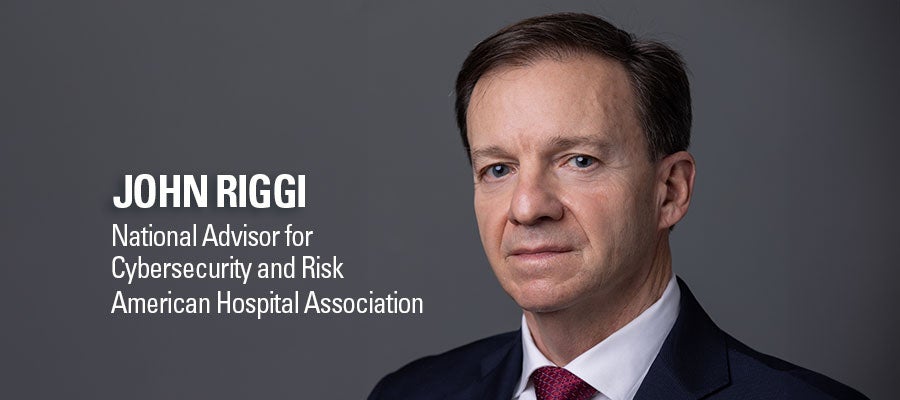John Riggi, National Advisor for Cybersecurity and Risk, AHA


Examine the top cyber and risk threats and opportunities facing health care in 2025 in this blog by John Riggi, AHA’s national advisor for cybersecurity and risk.
John Riggi, AHA’s national advisor for cybersecurity and risk, outlines available cybersecurity resources vital to protecting rural hospitals from cyberthreats.
John Riggi, AHA’s national advisor for cybersecurity and risk, provides insight into 2024’s health care cybersecurity challenges to help hospitals prepare for the next big cyberattack.
John Riggi, AHA national advisor for cybersecurity and risk, explains why cybercriminals are shifting from directly targeting hospitals to hitting the third-party technology and service providers critical to supporting hospitals’ clinical care. He highlights four key strategies to help hospitals and health systems strengthen their third-party risk management program against the debilitating effects of the next, inevitable Change Healthcare-like cyberattack.
Understand the impact of the Biden-Harris Administration's National Cybersecurity Strategy on health care and its relevance for hospitals and health systems. #BidenCybersecurity
What can your hospital or health system do to proactively prepare for a cyberattack with plans to maintain both business and clinical continuity? Gain insights gleaned from a recent AHA webinar with four health care leader panelists and John Riggi, national advisor for cybersecurity and risk for the AHA. Read Riggi’s new AHA Cyber Intel blog article to learn four strategies to effectively prepare for a cyberattack.
It’s a sad fact that hospitals and health care systems continue to be a prime target for cyber criminals.
A survey released in early September from Proofpoint, Inc., and the Ponemon Institute, on cybersecurity in health care raises important issues but appears to have a number of significant limitations.
Are you aware that cyber adversaries target the health care sector the most of all critical infrastructure sectors? Hospitals and health systems in particular have frequently been the target of high-impact ransomware attacks, which disrupt patient care and risk patient safety.
As COVID-19 progresses, cyber criminals seek to exploit health care infrastructure.
